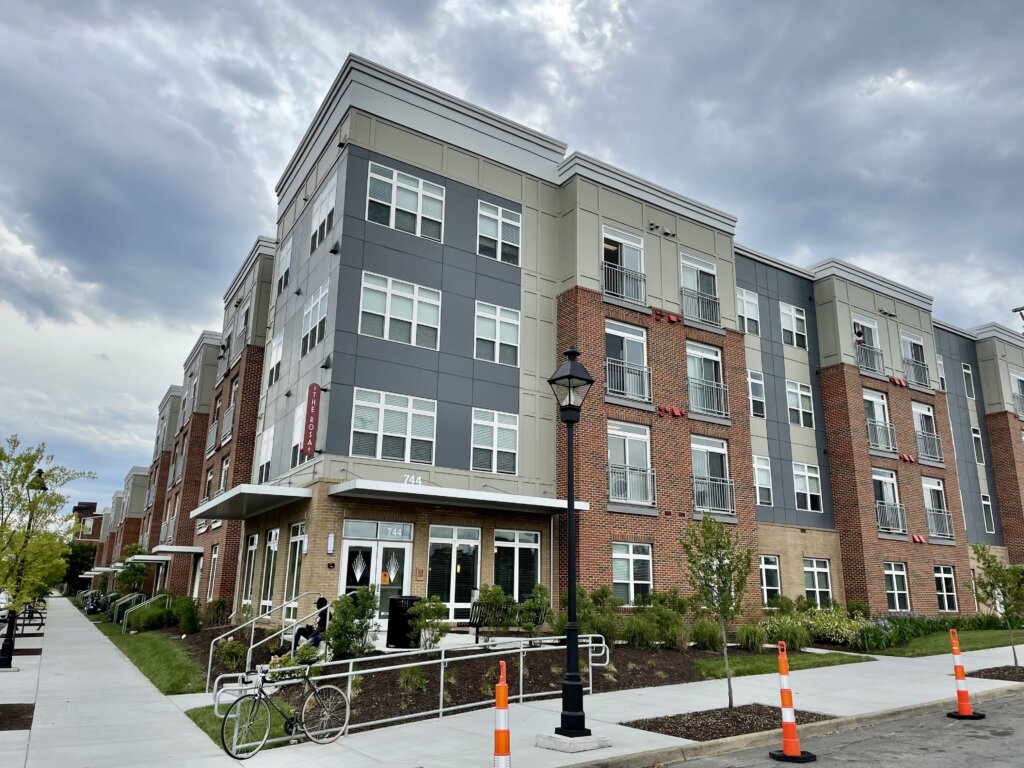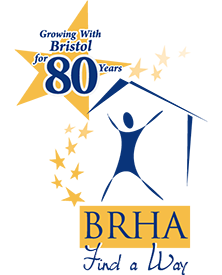Nearly 30 percent of households across the state struggle to afford the cost of housing.
BY: KATE MASTERS – DECEMBER 14, 2021 12:02 AM

The Rosa, an affordable housing development by Enterprise Community Partners and the Richmond Redevelopment and Housing Authority in Richmond’s Jackson Ward neighborhood. (Wyatt Gordon/ For the Virginia Mercury)
A new report found that Virginia is short at least 200,000 affordable rental units as many residents struggle to afford the cost of housing.
The findings, presented by the state’s Joint Legislative and Audit Review Commission, were part of a larger review of affordability and potential impacts on supply and demand, including the effectiveness of existing state housing programs. Analysts for the state watchdog agency found that nearly 30 percent of Virginia households are “cost-burdened,” a measure that refers to people who spend more than 30 percent of their income on housing.
“Of those households, nearly half of them are severely cost-burdened, meaning they’re spending more than 50 percent of their income on housing,” Stefanie Papps, a senior legislative analyst for the commission, told state lawmakers Monday. Black and Hispanic Virginians are disproportionately represented among those households, who are also more likely to rent than own their homes and have a median income of $32,000.
While the overall percentage of cost-burdened households in Virginia declined slightly over the last decade — from 32 percent in 2009 to 29 percent in 2019 — the number of low-income households who struggled with housing costs increased by three percent over the same time period.
Those include Virginians making below 30 percent of the average median income in their area to those making between 51 and 80 percent. Papps said many of the state’s most common jobs offer wages that fall under the low-income threshold, including custodians, home health aides and bus drivers.
Virginia, “like most of the nation, has a shortage of affordable rental units for people with extremely and very low incomes,” she said. The report estimated at least 200,000 additional apartments are needed to meet those needs, especially in Northern Virginia and Hampton Roads.
The Virginia Housing Development Authority is responsible for much of the state’s programming related to affordable housing, including home buying and rental assistance programs. Analysts found that the nonprofit, founded by the state in 1972, has one of the highest net asset balances of any housing finance agency in the country, but barriers still exist for some of the most at-need Virginians.
Since 2013, for example, the agency has invested more than $4 billion in new affordable housing complexes. According to the report, much of that financing has gone to “workforce housing” — developments required to set aside a certain number of units for income-restricted households.
The program, however, doesn’t require developers to set the rents for those apartments below market rates. As a result, they aren’t actually affordable for the people they’re intended to benefit.
“The median cost burden for renters in these income-restricted units is greater than the statewide median cost burden for low-income renters,” the report found. According to analysts, the development authority could also be investing more of its net income into a community outreach program designed to expand homeownership and rental housing for some of the neediest Virginians.
CEO Susan Dewey expressed concerns with some of the findings in the report, writing in a letter to JLARC that developers might not be willing to participate in a financing program that includes rent limits for workforce housing developments. Analysts also pointed out there are other barriers to affordable rent in Virginia, including a severe shortage of federal rental assistance vouchers for low-income housing.
But according to Brian Ball, the state’s secretary of commerce and trade, one of the biggest needs is more investment in the Virginia Housing Trust Fund, a repository of money for affordable housing developments. The state’s General Assembly made its largest-ever investment in the fund last year, when lawmakers allocated roughly $71 million. Still, Ball said far more is needed to fully meet demand.
“The bottom line here is that the housing trust fund needs more money,” he said. “We’ve done a pretty good job over the last few years of getting the appropriation up to a more acceptable level. But that certainly hasn’t been our history.”

